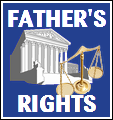 The standard of evidence used in child abuse and child neglect proceedings is called the preponderance of the evidence. When Child Protective Services (hereinafter referred to as “CPS”) or the Administration for Children’s Services (hereinafter referred to as “ACS”) seeks to establish child abuse or child neglect they bring proceedings in Family Court. Family Courts makes these decisions based upon a preponderance of the evidence. Unfortunately, individuals representing themselves in these proceedings usually do not understand how the legal system works and how to present evidence. Sometimes the only evidence presented is the evidence by the CPS or ACS worker of the allegations of abuse or neglect of the children. Opinions of CPS or ACS workers, statements made by young children, hearsay statements made by third parties may all be taken into consideration in proceedings involving child abuse and child neglect.
The standard of evidence used in child abuse and child neglect proceedings is called the preponderance of the evidence. When Child Protective Services (hereinafter referred to as “CPS”) or the Administration for Children’s Services (hereinafter referred to as “ACS”) seeks to establish child abuse or child neglect they bring proceedings in Family Court. Family Courts makes these decisions based upon a preponderance of the evidence. Unfortunately, individuals representing themselves in these proceedings usually do not understand how the legal system works and how to present evidence. Sometimes the only evidence presented is the evidence by the CPS or ACS worker of the allegations of abuse or neglect of the children. Opinions of CPS or ACS workers, statements made by young children, hearsay statements made by third parties may all be taken into consideration in proceedings involving child abuse and child neglect.
Parents and other individuals often tell their life stories to CPS or ACS investigators looking for sympathy. This is usually a terrible mistake! CPS and ACS investigators are there to prove that there have been instances of child abuse or child neglect. They work under the presumption that child abuse or child neglect has taken place whenever a complaint is made, no matter how frivolous it is. When parents tell their life story to these investigators, the investigators are simply looking to extrapolate from the story evidence which can be used against the parent in the child abuse and child neglect proceeding.
The Power of CPS and ACS Investigators
CPS and ACS investigators have a lot of power. Unfortunately, there is not an appropriate supervisory system to check their use of the power. Their reports, no matter how salacious, based on opinions not on evidence, based on statements made by individuals who have no actual knowledge of the circumstances and events are given credence. There is a tendency for these investigators to abuse their power. They look for any evidence of child abuse or child neglect. The evidence can simply be that a child was injured. They can take the position that if the child was injured it was someone’s responsibility to see to it that the child was not injured.






 Judge Steven Mostofsky sitting in a Family Court Part in Kings County had an action brought before him by the
Judge Steven Mostofsky sitting in a Family Court Part in Kings County had an action brought before him by the 

 Elliot S. Schlissel is a
Elliot S. Schlissel is a  Elliot S. Schlissel is a
Elliot S. Schlissel is a 





